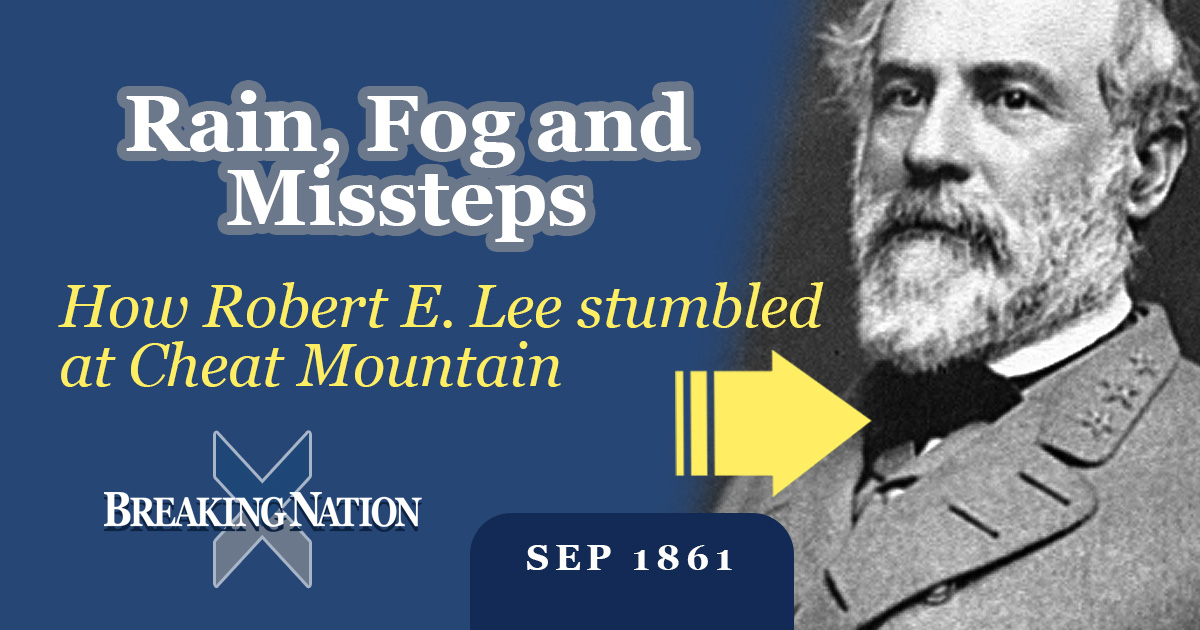Cheat Mountain’s Hidden Drama: Lee, Rain, and Retreat

In the fall of 1861, the Cheat Mountain Campaign marked one of the first significant military operations in western Virginia, a rugged region where both Union and Confederate forces sought to secure not just territory, but also vital transportation corridors and local loyalties. Fought in September 1861, the campaign highlighted the strategic challenges and growing pains of both sides as they attempted to project power into a mountainous landscape inhospitable to large-scale maneuver.
Confederate General Robert E. Lee, newly dispatched from Richmond to coordinate operations, faced the difficult task of uniting a scattered Confederate presence under his direction. His target was the Union position on Cheat Mountain, where Federal forces commanded by Brigadier General Joseph J. Reynolds held fortified ground. The Confederates planned a multi-pronged attack intended to envelop the Union stronghold. Yet the complexity of the plan far outstripped the capabilities of inexperienced officers and men. Poor communication, rugged weather, and the sheer difficulty of marching through steep, rain-soaked terrain doomed the operation from the outset.
The Union defense, meanwhile, demonstrated the advantage of holding prepared positions in difficult country. Reynolds’ forces, though not especially numerous, were entrenched behind strong works and benefited from interior lines of communication. When Confederate columns faltered in their approach and failed to coordinate their attacks, the Federals repulsed them with comparative ease. In the end, what might have been a Confederate opportunity to dislodge Union control of western Virginia turned into a dispiriting retreat.
The campaign’s significance rests less in its battlefield scale—casualties were relatively light—than in its broader consequences. For the Union, victory at Cheat Mountain helped secure the mountainous counties of western Virginia, reinforcing the region’s drift toward eventual separation from Virginia and admission into the Union as West Virginia in 1863. For the Confederacy, the episode was deeply disappointing. It exposed weaknesses in planning, highlighted the difficulty of sustaining operations in forbidding terrain, and cast an early shadow over Robert E. Lee’s reputation. Derisively nicknamed “Granny Lee” by some contemporaries, he struggled to shake off perceptions of over-caution until later campaigns restored his standing.
Thus, the Cheat Mountain Campaign illustrates the messy, experimental nature of early Civil War campaigning. Both sides were still learning how to mobilize, maneuver, and sustain armies in the field. While the clash did not decide the war’s course, it helped shape regional loyalties, military reputations, and the strategic map of the Appalachians in the opening year of conflict.
Breaking Nation: A Civil War Podcast explores the American Civil War, its turning points, and our national memory. Discover full episodes, transcripts, and resources at www.breakingnation.com — your destination for in-depth Civil War podcast content and fresh perspectives on America’s past. Listen on Apple Podcasts, Spotify and Amazon Music.




